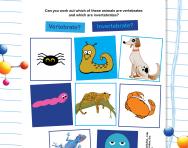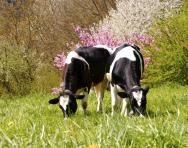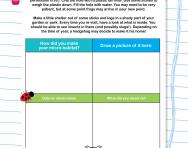Year 2 science: what your child learns

During Year 2 more work will be done to develop the core scientific skills of observation and investigation.
The children will work on a different topic each term, designed to encourage them to ask questions about the world around them, and they will be taught the importance of gathering evidence and carrying out experiments.
They will start to think about the importance of planning before they start a task: how they will find the answers, what questions they will need to ask, and what the result might be. They will also be thinking of the best ways to present their results; for example, they could be using drawings, charts, diagrams, ICT, or standing up and speaking to the class.
Science in Year 2 – what your child will learn:
There are a range of topics for science in KS1, divided into three main groups, and your child will probably study one or more of these. You may find your child returning to a topic they have covered before, but this time in greater detail.
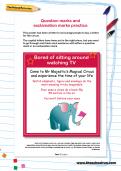
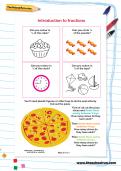
Start the Year 2 Learning Programme today!
- Weekly maths, science & English worksheets direct to your inbox
- Follows the National Curriculum
- Keeps your child's learning on track
In Year 2 your child will learning about science by using the following methods, processes and skills:
- asking simple questions
- observing closely, using simple equipment
- identifying and classifying
- using their observations and ideas to suggest answers to questions
- gathering and recording data to help in answering questions
The topics they will learn under the new 2014 curriculum are:
Living things and their habitats
- compare things that are living, dead and things that have never been alive
- describe how different habitats provide needs for different kinds of animals
- name a variety of plants and animals in their habitats, including micro-habitats
- describe simple food chains
- observe and describe how seeds and bulbs grow into mature plants
- describe how plants need water, light and a suitable temperature to grow and stay healthy
- understand that animals have offspring which grow into adults
- find out about the basic needs of animals (water, food, air)
- describe the importance of good diet, exercise and hygiene
Use of everyday materials
- identify and compare suitability of a variety of everyday materials for particular uses
- find out how shapes of solid objects can be changed by squashing, bending, twisting and stretching
Try this at home
- Play games with your senses: use a blindfold and try to identify objects just by touch, sound, smell and taste.
- Take your child to a 'habitat' (for example: a pond in the park or a wooded area). Get them to split an A4 page into two sections. On one side, ask them to list anything they can see that isn't an animal (water, soil, trees, grass, etc.). Then ask them to look for as many animals as they can find and write a list of these on the other side of the page. Once you get home, ask them what parts of the habitat the animals rely on and why. Might some animals eat others to live? You may want to back this up with some research on the Internet or in the library.
- Buy some seeds or bulbs and plant some in various different places (you could have one in a sunny spot in the garden, one in the shade and one in a container indoors). Water the seeds / bulbs according to instructions on the packet, making sure you give them all exactly the same amount of water at the same time of day (explain to your child that this is called carrying out a 'fair test').
- Get out some baby photographs and see if you can child can tell who they are.
- Start a collection: it could be anything – stones, shells, plastic dinosaurs – and sort it by size, colour, shape.
- Make ice lollies and talk about what happens to water when it goes in the freezer
Our Year 2 science worksheets and activities will help you reinforce the theory with some practical, hands-on experimentation.

Give your child a headstart
- FREE articles & expert information
- FREE resources & activities
- FREE homework help
